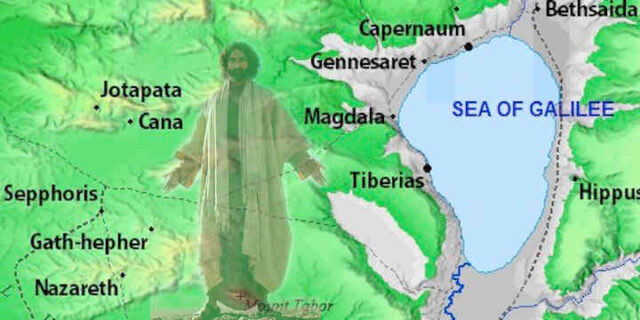Was Jesus a real person or an invention? How can we really know anything about him? Can we have confidence in what the Bible says about him?
These are important questions. They have been much argued over. There are so many different views, so who should we believe?
This post starts a series where I will examine the prevailing views among historians and others working in the field, picking up new information that has come to light in the past decade or so.
Frequently asked questions
Checking through my statistics on posts that have been most popular over more than a decade, I have found that Jesus and the Bible are probably the two topics that attract the most readers.
Yet many of the posts and pages are 5-10 years old. The last decade has seen new archaeological discoveries, new books and new conclusions – nothing all that radical but definitely interesting.
So for the next few posts I’ll look at latest information on topics like archaeology, the reliability (or otherwise) of the New Testament text, what historians make of the miracle stories, especially the resurrection, and which historians can be most trusted to give us an objective, consensus view.
Evidence and knowledge
I’m not a New Testament historian, and probably you’re not either. So we have two options.
- Either we can find those who have spent their lives studying ancient languages, documents, archaeology and history, and form our conclusions based on their expert knowledge, or
- we can think we are competent to make our judgments based on what we’d like to be true or something we read on the internet.
So why trust me?
My blog posts are based firmly on the first option. I read what I can from respected scholars who follow mostly objective methods. I try to find what is the general consensus. I check out the more “fringe” views but I know they are “fringe” for a reason. I give references so you can check out the evidence for yourself.
Religious and Irreligious bias
We all have our biases and cherished opinions, even the experts. But generally following an objective historical method and responding to peer review keeps scholars within reasonable limits on bias. That is another reason for trusting the experts who work in reputable organisations and publish regularly to allow others to review their conclusions.
Religious belief, or lack of it, is an obvious issue when dealing with the history of Jesus and the gospels. I am a follower of Jesus, so how can I possibly present this information in a neutral way?
Firstly, let’s recognise that everyone has bias, and an atheist can be just as subjective as a theist
Fact vs opinion
I think the best way to deal with (ir)religious bias is to recognise that facts aren’t the same as opinions. Facts are what is actually true about our world, while opinions are our response to those facts. For example, it is a medical fact that smoking cigarettes increases our risk of cancer. But we can each choose our response, whether to take the risk or not.
We are each entitled to our own opinions, but we can’t invent our own facts. So we can approach this subject on two levels:
- First we need to ascertain the best historical “facts” that we can, established by a consensus of scholars who may be Christian, Jewish, atheist, agnostic, whatever. These are facts which all readers should be able to assent to. Of course there will be many matters which scholars disagree over, or haven’t come to a consensus conclusion, and on them we may have to wait until further information is available.
- With the known historical facts as a basis, each of us is then both informed and free to decide what opinions or conclusions we draw.
For example, one historical fact is that most historians conclude from the evidence that Jesus was believed in his day to be able to perform miraculous healings. We may respond to that “fact” with belief that he really did heal (whether by natural or supernatural means), or disbelief (i.e. such healing isn’t possible), or agnosticism.
In this series ….
…. I will mainly be sticking to the facts, as much as they are generally agreed on. When I offer an opinion, it will be as a Christian, but I will make that clear.
Will you join me?
Watch this space and come on a journey of discovery!
Free Bible Images and Bible Atlas.




